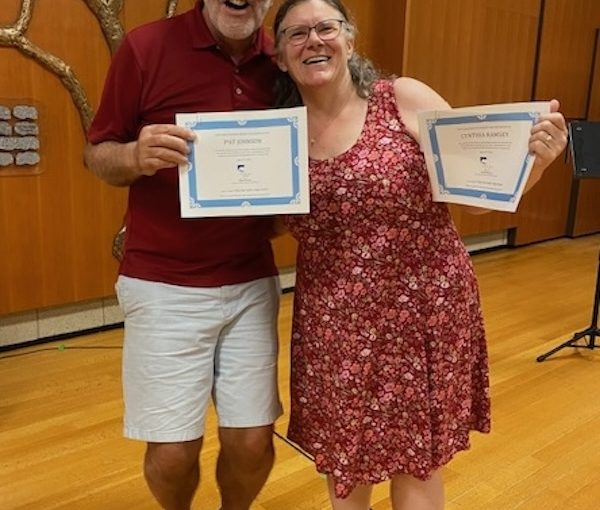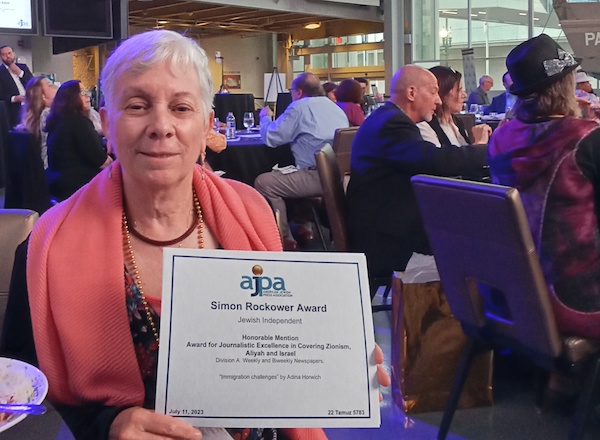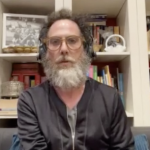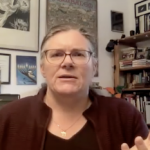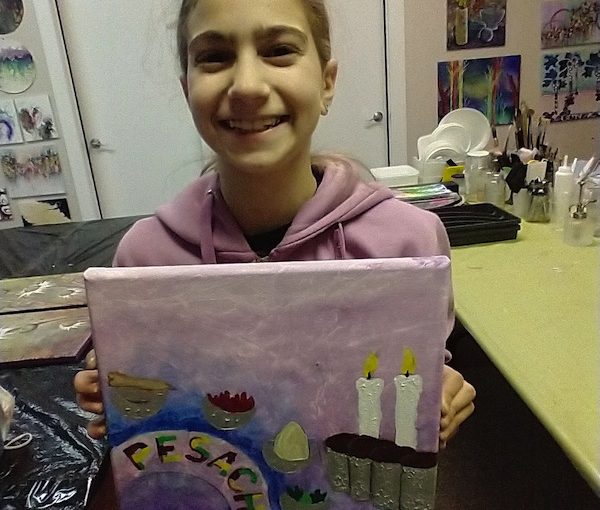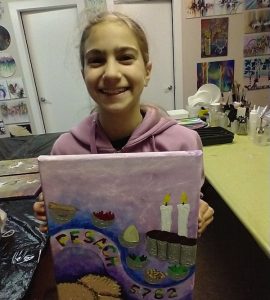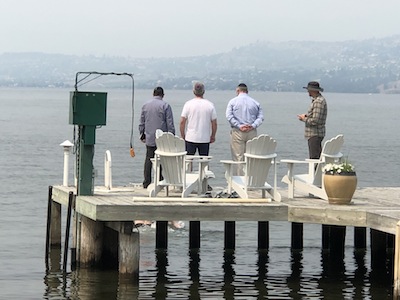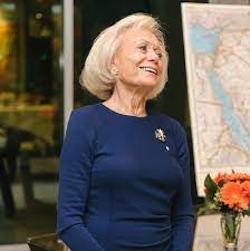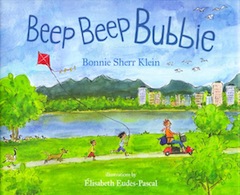Israeli writer Gil Zohar (standing, seventh from the left) with other 2024 Rockower Award winners in Nashville, Tenn., last month. (photo by Bill Motchan)
At the annual conference of the American Jewish Press Association, which took place in Nashville, Tenn., June 2-4, Israeli freelance writer and tour guide Gil Zohar was there in person to collect his Rockower Award for Excellence in Jewish Journalism. He won an honourable mention for the article “Identifying the victims,” published by the Jewish Independent Nov. 10, 2023. The Independent picked up four Rockowers this year, for work published in 2023.
Zohar’s article (jewishindependent.ca/identifying-the-victims) won in the Wild Card Category – Award for Excellence in Writing about the War in Israel: News and Feature Writing. It explains how staff at the Israel Defence Forces’ Shura base were working around the clock at the time to identify the remains of the 1,200 people murdered in Israel by Hamas terrorists on Oct. 7, 2023, a process made more grisly and difficult because of the extreme brutality of the attack.
Winning first place in the Wild Card Category for weekly and biweekly newspapers was “New era for world Jewry” by Chaim Goldberg, published by Intermountain Jewish News (Denver, Colo.). Taking second place was “A letter from Israel: It’s okay to start dreaming” by Chaim Steinmetz, published in the Jewish Journal of Greater LA (Los Angeles, Calif.).
The Jewish Independent won first place for weekly and biweekly newspapers in the category of Excellence in Single Commentary with Helen Mintz’s article “Opportunity for healing” (jewishindependent.ca/opportunity-for-healing). Originally presented as a d’var Torah at Or Shalom Synagogue, it was “intended as a beginning of a conversation about how we, as Canadian Jews, can heal our relationship with Ukrainians and Ukraine.” Of the article, the Rockower jury wrote: “A powerful reminder that there are many ways to view complex histories. The beautiful way the story is told is both intimately personal and ultimately universal.”
Taking second place in the Single Commentary category was “Wokeism and the Jews: A reckoning” by Monica Osborne (Jewish Journal of Greater LA), with “The inside story of how Palestinians took over the world” by Gary Wexler (also for the Jewish Journal of Greater LA) receiving an honourable mention.
Local musician, composer and bandleader Moshe Denburg earned the Jewish Independent second place for Excellence in Arts – Review/Criticism, weekly and biweekly newspapers, with his review “Erez’s new CD shows mastery” (jewishindependent.ca/erezs-new-cd-shows-mastery). The Rockower jury wrote: “Sounds like a great CD.”
Placing first Excellence in Arts – Review/Criticism was “Oppenheimer, and the lesson of brainy Jews” by Thane Rosenbaum (Jewish Journal of Greater LA) and Tabby Refael received an honourable mention for the article “For a deaf woman from Iran, freedom never sounded so good” (Jewish Journal of Greater LA).
Winnipeg freelance writer Joanne Seiff won the Independent its fourth award, placing second in the category of Excellence in Writing about Jewish Thought and Life. The JI submitted three of her articles for consideration: “Women’s rights evolve,” “Honouring others in death” and “A yearly reminder to return.” The first article (jewishindependent.ca/womens-rights-evolve) talks about parallels between modern events and talmudic discussions – in particular laws that limit women’s ability to control their own bodies. The second article (jewishindependent.ca/honouring-others-in-death) is about how Jewish tradition could inform the debate that ensued after the remains of four murdered Indigenous women were found in Winnipeg-area landfills, and the third piece (jewishindependent.ca/a-yearly-reminder-to-return) connects the renovation of Seiff’s home with the month of Elul and teshuvah, usually translated as repentance, but also meaning return. “Returning to our best selves might require us to listen, pay attention to our gut feelings, do some renovation,” she writes.
In summing up Seiff’s articles, a member of the Rockower jury commented: “I would love to live in Winnipeg, only to read Joanne Seiff regularly. She is an intelligent writer.”
First place in this category for weekly and biweekly newspapers went to “Ten measures of beauty, of fragility, of hope” by Tehilla Goldberg (Intermountain Jewish News) and Refael won another honourable mention, for the article “I’m an observant Jew, and I need Christmas music more than ever before.”
To read the writing of all the 2024 Rockower winners, visit ajpa.org.


